President Brank s Continued Outreach Initiative American Psychology law Society
August, 2017
Welcome to the August 2017
American Psychology-Law Society (AP-LS) E-Newsletter.
Our new monthly E-News provides information about activities, upcoming events, and resources to connect the psychology-law community.
AP-LS aspires to excel as a valuable, effective, and influential organization advancing the science of psychology-law and the translation of psychology-law knowledge into practice and policy.
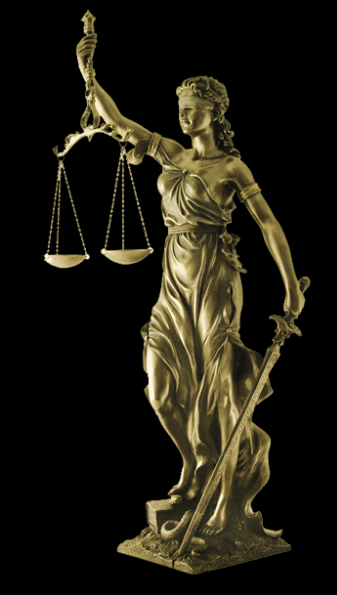
We are appointing a new editor, who will take over the E-News and transition from the PDF Newsletters to the E-News, which will occur in August 2017. In the period of transition from Jan through Aug 2017, Tess M.S. Neal, AP-LS Member-at-Large, is creating and sending the E-News.
AP-LS aspires to excel as a valuable, effective, and influential organization advancing the science of psychology-law and the translation of psychology-law knowledge into practice and policy.
NEW PRESIDENTIAL INITIATIVE
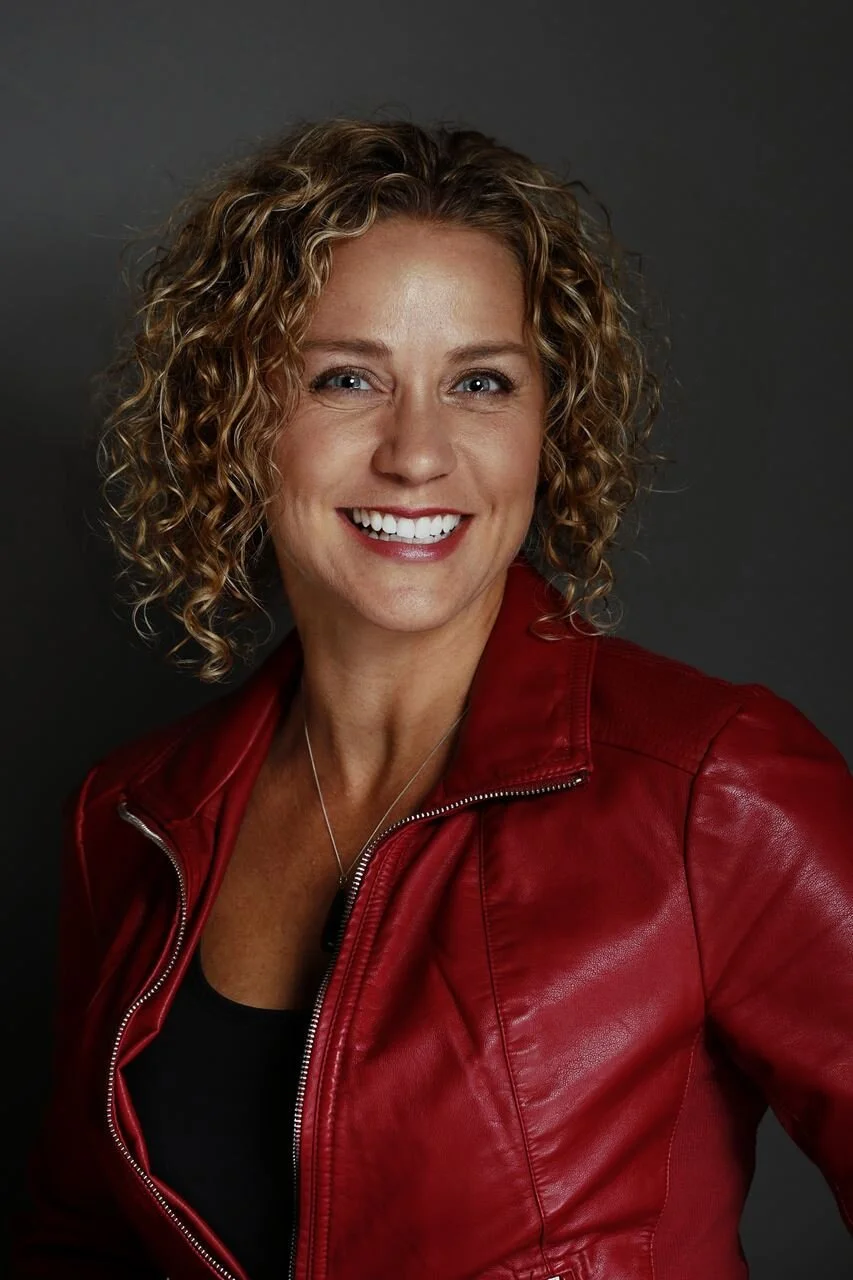
Eve Brank, Incoming AP-LS President
Later this week, I will have the great honor of being the next AP-LS president. I'm humbled and grateful for the opportunity to serve AP-LS in this new role. As I described at our annual meeting in Seattle, I have an internal and external focus with my presidential initiative. Internally, I want to focus on the way our organization works and ways to improve transitions between new committee chairs, committee members, and executive committee officers. Externally, I want to focus on doing good and, at the very least, leave a positive impact in the cities in which we visit for our conferences. Several of you volunteered to participate in one of these task forces. First, thank you for your willingness to contribute to AP-LS in this way. Second, if you volunteered, you should have received an email from me earlier this week. If you did volunteer and did not receive that email or you are still wanting to volunteer for one of these task forces, please email me by Aug 9 to be added to a group. I look forward to working with each of to make AP-LS an even better organization than it already is.
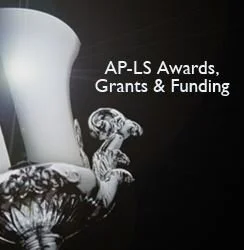
AP-LS awarded one large grant ($42,446) and two small grants ($3,775 and $5,000) through this program. Details of the projects funded via the large and small grants are below.
Large Grant: Connecting Police Practitioners with Researchers: Developing a Law Enforcement Human-Subjects-Pool
PI: Kimberly McClure, Western Illinois University Co-PI: Joanne Kurt-Hilditch, Illinois Law Enforcement Training and Standards Board Executive Institute
Abstract: We will establish the Professional Research Pool for Criminal Justice Science (PRP for CJS) directed and operated by the ILETSBEI. We will evaluate it as a mechanism to facilitate police researcher recruitment of representative, police samples, build a stronger partnership between executive law enforcement and researchers and improve the translation and acceptance of police research into policies and practices. This initial project will develop a web-based structure to connect criminal justice professionals and researchers. It will also lead to the development of an advisory board, procedural documents and curriculum development for the consumption and translation of scientific findings into practice and policy. Press release here.
Small Grant: When women conceive in rape: A mixed-methods study of legal experiences, outcomes, and preferences
PI: Lucy Guarnera, University of Virginia
Co-PI: N. dinkon Reppucci, University of Virginia
Abstract: When women conceive in rape, their pregnancy and any resulting birth put them in a unique legal position at the nexus of the criminal justice system and civil/family law system. Legal obstacles and negative perceptions regarding rape-related pregnancy may create serious problems for these doubly vulnerable victims, as well as making it more difficult to successfully prosecute these cases. Despite the significant number of rape-related pregnancies per year in the U.S. (an estimated 32,000) and the variety of laws and policies associated with rape-related pregnancy, no previous empirical research has investigated the legal trajectories of women who conceive in rape. And no empirical work has examined public preferences regarding the web of laws and policies that impact men, women, and children involved in alleged cases of rape-related pregnancy. We propose a two-phase, sequential exploratory mixed methods study to addresses these gaps in the literature.
Small Grant: Reducing Cultural Polarization Using Aporetic Reasoning
PI: Rob Robertson, California State University - Fullerton
Co-PI: Danieli Evans, Yale University
Abstract: For affect-laden or polarizing policy problems, policymakers and citizens may fail to converge on the best available empirical evidence, instead interpreting evidence and perceiving risks in accordance with their own worldviews. Judicial decisions are not immune to motivated reaction, as courts—particularly appellate courts—frequently must rule on issues that are both polarizing and rest on contested empirical foundations. Judges and other policymakers need evidence-based communication strategies that ameliorate motivated reaction. Our proposal tests the use of aporetic reasoning, a style of justification in which the decision-maker acknowledges the complexity and uncertainty of the question before them, affirming the strongest arguments or the most important values held by the losing side. We hypothesize that aporetic justifications will lower a dispute's emotional stakes, making individuals less likely to feel that a decision they disagree with is an attack on their identity. We employ an experimental vignettes survey design to test the impact of aporia, using vignettes where judges rule on the constitutionality of state bans on concealed weapons or police use of deadly force. By doing so, we will test how aporetic reasoning impacts perceptions that a decision was accurate, fair and legitimate. Our work sits at the intersection of law, decision-making, psychology, and public opinion, testing a novel theory for reducing the negative impacts of motivated reasoning.
TWO AP-LS FELLOWS TO RECEIVE MAJOR APA AWARDS
For Distinguished Contributions
Two of APLS' Fellows—Professors Gail S. Goodman and Saul Kassin—will receive prestigious awards at the APA convention.
Gail S. Goodman's award is theDistinguished Contributions to Psychology in the Public Interest Award (Senior).
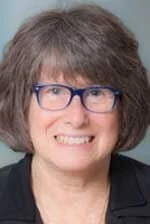
The title of her invited award address is, "Things I Never Told Anyone: Child Trauma and Law," which she will deliver on Friday 8/4 from 2-2:50pm.
Saul Kassin's award is theDistinguished Contributions to Research in Public Policy.
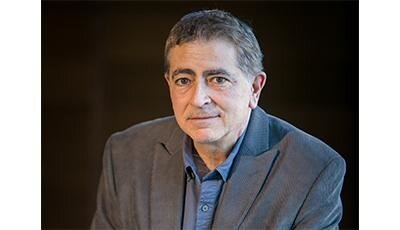
The title of his invited award address is, "False Confessions: How Can Psychology So Basic Be So Counterintuitive?," which he will deliver on Friday 8/4 from 3-3:50pm.
**Saul Kassin is also giving a Master Lecture, "The Psychology of Wrongful Convictions: Implications for Policy and Practice" on Saturday 8/5 from 2-2:50pm.
GARY WELLS SELECTED AS APS JAMES MCKEEN CATTELL FELLOW
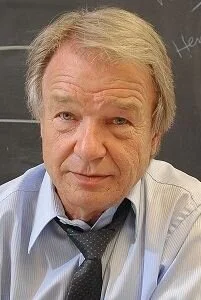
AP-LS Fellow Gary Wells received the prestigious 2017 James McKeen Cattell Fellowship through the Association for Psychological Science.
This Award recognizes APS members for a lifetime of outstanding contributions to the area of applied psychological research whose work addresses a critical problem in society.
Gary Wells is recognized throughout the world for applying his pioneering research on eyewitness identification errors, improving criminal justice practices, and preventing wrongful convictions. According to the APS press release, "As the leading theoretician, researcher, reform advocate, and spokesperson [in eyewitness identification], Wells is synonymous with this science and all that it has accomplished."
STUDENT COMMITTEE ELECTION RESULTS
The Student Committee had many great candidates this year, and are pleased to announce the elected 2017-2018 student representatives:
Chair - Amanda Reed | John Jay College of Criminal Justice
Chair-Elect - Katherine Hazen | University of Nebraska - Lincoln
Communications Officer - Victoria Pietruszka | Drexel University
Campus Representative Coordinator - Ryan Hunlock | Palo Alto University
Secretary - Keisha April | Drexel University
Clinical Liaison - Amanda Rosinski | John Jay College of Criminal Justice
Experimental Liaison - Adele Quigley-McBride | Iowa State University
Law Liaison - Emma Marshall | University of Nebraska-Lincoln
Past-Chair- Emily Haney-Caron | Drexel University
Officers will officially transition at the Division 41 Business Meeting during the APA Convention. Thank you to all of the officers leaving their positions for their hard work throughout this past year, and welcome to the new committee!
INDIGENOUS REPRESEN-TATION IN CANADIAN JURIES

Common Ground, sponsored by the AP-LS Student Committee, is designed to foster collaboration among lawyers, psychologists, and students in AP-LS. It seeks to highlight the unique contributions each group can make to the field of law-psychology. Each article is co-authored by a student, a psychologist, and a legal professional to explore issues from each perspective.
In this second article, Logan Ewantion, M.A., Evelyn M. Maeder, Ph.D., M.L.S., & Jane dinkson, Ph.D. explore the problem of under-representation of Indigenous peoples on Canadian criminal juries. Read the article on pages 4-7 of the latest PDF Newsletter here.
LHB NOW OFFERS OPEN SCIENCE BADGES
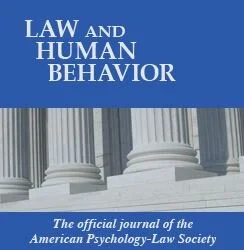
Law and Human Behavior, the official journal of the American Psychology-Law Society (AP-LS)/APA Division 41, is now offering open science badges to qualifying authors. We are excited to share this news with AP-LS members. Badges were developed in 2013 by the Center for Open Science to promote soundness and transparency in scientific practice and will be available to authors who voluntarily share data and/or materials or who preregister their study designs or analysis plans.
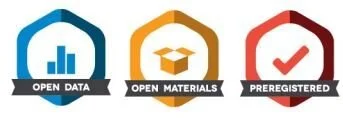
-
Open Data: All data necessary to reproduce the reported results that are digitally shareable are made publicly available. Information necessary for replication (e.g., codebooks or metadata) must be included.
-
Open Materials: All materials necessary to reproduce the reported results that are digitally shareable, along with descriptions of non-digital materials necessary for replication, are made publicly available.
-
Preregistered: At least one study's design has been preregistered; results must be fully disclosed.
For more details, please see here.
CORRECTIONS COMMITTEE UPDATE
Psychologist and Executive Director of the Largest Mental Health Facility (Jail) in the Country at AP-LS

At the 2017 AP-LS conference, the Corrections Committee was excited to welcome Dr. Nneka Jones Tapia, Executive Director of the Cook County Jail, to speak on the future of corrections reform. (See APA Monitor story on her here). She shared several initiatives at the jail designed to improve mental health care, enhance re-entry services, and reduce recidivism. Jail staff now receive over 100 hours of mental health courses, in addition to crisis intervention training (CIT), as part of their pre-service employment training. Front line staff are acculturated into a helping role from the outset and support the rehabilitative mission by providing enrichment programs. Beyond the jail walls, the staff have developed collaborative relationships with attorneys and judges, manage a hotline for families of detainees to call 24/7, and utilize closed community mental health centers as locations for post-release services. Perhaps more importantly than the operations of Cook County Jail, Dr. Jones Tapia utilized the workings of her jail (both good and bad) as a method to make a call to action for improving services and outcomes at the correctional facilities in which we are involved every day. Her specific recommendations:
-
Expansion of crisis intervention training for law enforcement officers. Provide law enforcement with the tools for effective de-escalation.
-
Development of partnerships between clinical providers and law enforcement.Collaborative partnerships both enhance law enforcement training and provide valuable service experience for clinicians.
-
Expansion of crisis services and drop off centers for police. The criminalization of mental illness will continue as long as dropping them off at jail remains easier and more efficient than available treatment centers (e.g., emergency departments).
-
Use of outpatient commitment. States with outpatient commitment laws can provide insight into effective practices to balance patient rights and reduction of offending behavior.
Dr. Jones Tapia's work highlights a new era of correctional rehabilitation in which clinicians also provide operational oversight for jails and prisons. Her commentary offers opportunities for practitioners and researchers alike.
If you have a suggestion for correctional topics at future conferences, please send to the Corrections Committee Chair, Sarah Miller.
CALL FOR NOMINATIONS: TEACHING AWARD
The APF 2018 Charles L. Brewer Distinguished Teaching of Psychology Award recognizes significant career contributions of a psychologist who has a proven track record as an exceptional teacher of psychology. The recipient of this award will receive a $2,000 award, a $1,000 travel stipend and round-trip airfare to the 2018 APA convention, a plaque presented at the APA convention, and will be invited to give a special address at the APA convention.
Nominees should demonstrate and will be rated on the following dimensions:
-
Have demonstrated achievement related to the teaching of psychology
-
Exemplary performance as a classroom teacher
-
Development of innovative curricula and courses
-
Development of effective teaching methods and/or materials
-
Teaching of advanced research methods and practice in psychology
-
Administrative facilitation of teaching
-
Research on teaching
-
Training of teachers of psychology
-
Evidence of influence as a teacher of students who become psychologists
See this website for more information. The deadline for applications isDecember 1, 2017.
AP-LS @ APA
Division 41 in D.C.
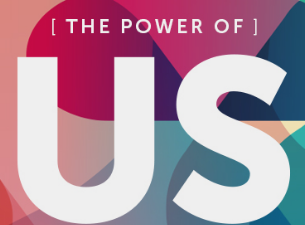
AP-LS will have convention programming at this year's American Psychological Association convention in Washington D.C. (August 3-6, 2017).
The 2017 searchable Online Convention Program is available here, with details about Div. 41 programming. For more detailed highlights, see pages 40-43 of the newsletter here.
Please attend our social hour on Thursday evening and the business meeting beforehand. Our committees and affiliates are sponsoring special sessions, including the American Academy of Forensic Psychology and the Student Committee. We are excited to offer programming addressing sexual violence on campus, addiction, and the relationship between criminal justice and gender, and much more.
Thanks to Monica Miller and Twila Wingrove for their hard work to prepare this year's Div. 41 program at APA!
Source: https://ap-ls.org/newsletter-feed/august-2017
0 Response to "President Brank s Continued Outreach Initiative American Psychology law Society"
Post a Comment